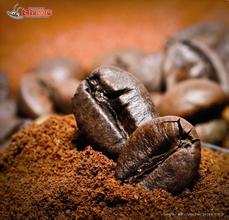Differences, distinctions and awards of sunburned Sidamo Shakiso G1gu Guji nectar coffee beans

For professional baristas, please follow the coffee workshop (Wechat official account cafe_style)
Factory name: coffee workshop address: Guangzhou Yuexiu District Baoxian Qianjie Cafe manufacturer contact Information: 020-38364473 shelf life: 90 net content: 227g packing: bulk origin: Ethiopia
Sidamo Natural G1
Country: Sidamo
Grade: G1
Origin: guji Guji
Baking degree: moderately shallow baking
Treatment: insolation
Variety: native species
Producing area: Shaquiso Shakicha
Flavor: blueberry, orange, plum, blueberry
Shakiso is unique in the Sidamo Valley, and it is also an area far from most coffee producing areas in the Sidamo province. Another well-known local industry is gold mining, which is destabilized by labor, land and ethnic factors. But the coffee in this area is quite special, and Nekisse, the legendary bean of Ninety Plus, also counts here.
Nectar, the original meaning of Xia Qieso's nectar, opens the website of Coffee Review to search for keywords with Guji. There are more than 10 articles with scores above 92 points, and there are also several times with high scores of 94 and 95.
Shakisso is located in the southern part of Guji and Oromia, adjacent to Sidama and Gedeo. There are many pits in this area, which were used to mine gold in the early days, so there are many potholes in this coffee growing area. This makes people dangerous when walking between coffee growing areas. Shakiso is a unique producing area of Guji / Cedamori, and even in Cedar Morri is a remote area far from most coffee producing areas, and another famous local product is gold ore. Miners, land, ethnicity and other factors also destabilized the region in 2006. As a result, the biggest problem facing the region now is that ─ needs manpower to maintain the growing area and harvest coffee. Local small farmers began growing organic coffee in 2001 and work closely with medium-sized coffee producers because they are familiar with how to grow forest coffee in the highlands.
Sweet cherry, raisin, preserved fruit, preserved plum, dried pineapple, strawberry
Cherry, blueberry, sweet orange, plum, blueberry, peach, litchi
[sipping] the mouth is filled with intense aromas such as sweet and juicy peaches, sweet pineapple, mid-range blueberries, blueberries, strawberries, pineapple and dried fruit, with lychee, plum flavor and dried fruit stickiness. The whole bean is like a tropical fruit storm, elegant and domineering, falling into the sea of nectar like its name.
Hand-washed Sidamo. 15g powder, medium fineness grinding (small Fuji ghost tooth cutter 3.5grinding), v60 filter cup, 91mi 93 degrees water temperature, first water injection 30g water, carry on steaming for 27 seconds, injection to 105g water cut off, wait for powder bed water to half, then water injection, slow water injection until 225g water volume, no water powder ratio at 1:15, extraction time at 2:00
Important Notice :
前街咖啡 FrontStreet Coffee has moved to new addredd:
FrontStreet Coffee Address: 315,Donghua East Road,GuangZhou
Tel:020 38364473
- Prev

Sunburn Sidamo Shakiso G1 Valley Guji nectar Coffee Bean species, Brand recommendation and Manor
For the exchange of professional baristas, please follow the coffee workshop (Wechat official account cafe_style) Shakiso is unique in the Sidamo Valley and an area away from most coffee producing areas in the Sidamo province. Another well-known local industry is gold mining, which is destabilized by labor, land and ethnic factors. But the coffee in this area is quite special, the legend of Ninety Plus
- Next

The flavor characteristics, producing areas and cooking parameters of iron-washed Bica coffee beans in Lake Titicaca, Bolivia
Professional baristas Please pay attention to the Coffee Workshop (Wechat official account cafe_style) most of the coffee in Bolivia used to be of mediocre quality, but in recent years the production of boutique coffee has developed rapidly and there have been a lot of pretty good beans. In recent years, the COE (Cup of excellence) system, which was first implemented in Brazil, has gradually become popular, and Bolivia has also introduced this system.
Related
- Detailed explanation of Jadeite planting Land in Panamanian Jadeite Manor introduction to the grading system of Jadeite competitive bidding, Red bid, Green bid and Rose Summer
- Story of Coffee planting in Brenka region of Costa Rica Stonehenge Manor anaerobic heavy honey treatment of flavor mouth
- What's on the barrel of Blue Mountain Coffee beans?
- Can American coffee also pull flowers? How to use hot American style to pull out a good-looking pattern?
- Can you make a cold extract with coffee beans? What is the right proportion for cold-extracted coffee formula?
- Indonesian PWN Gold Mandrine Coffee Origin Features Flavor How to Chong? Mandolin coffee is American.
- A brief introduction to the flavor characteristics of Brazilian yellow bourbon coffee beans
- What is the effect of different water quality on the flavor of cold-extracted coffee? What kind of water is best for brewing coffee?
- Why do you think of Rose Summer whenever you mention Panamanian coffee?
- Introduction to the characteristics of authentic blue mountain coffee bean producing areas? What is the CIB Coffee Authority in Jamaica?

